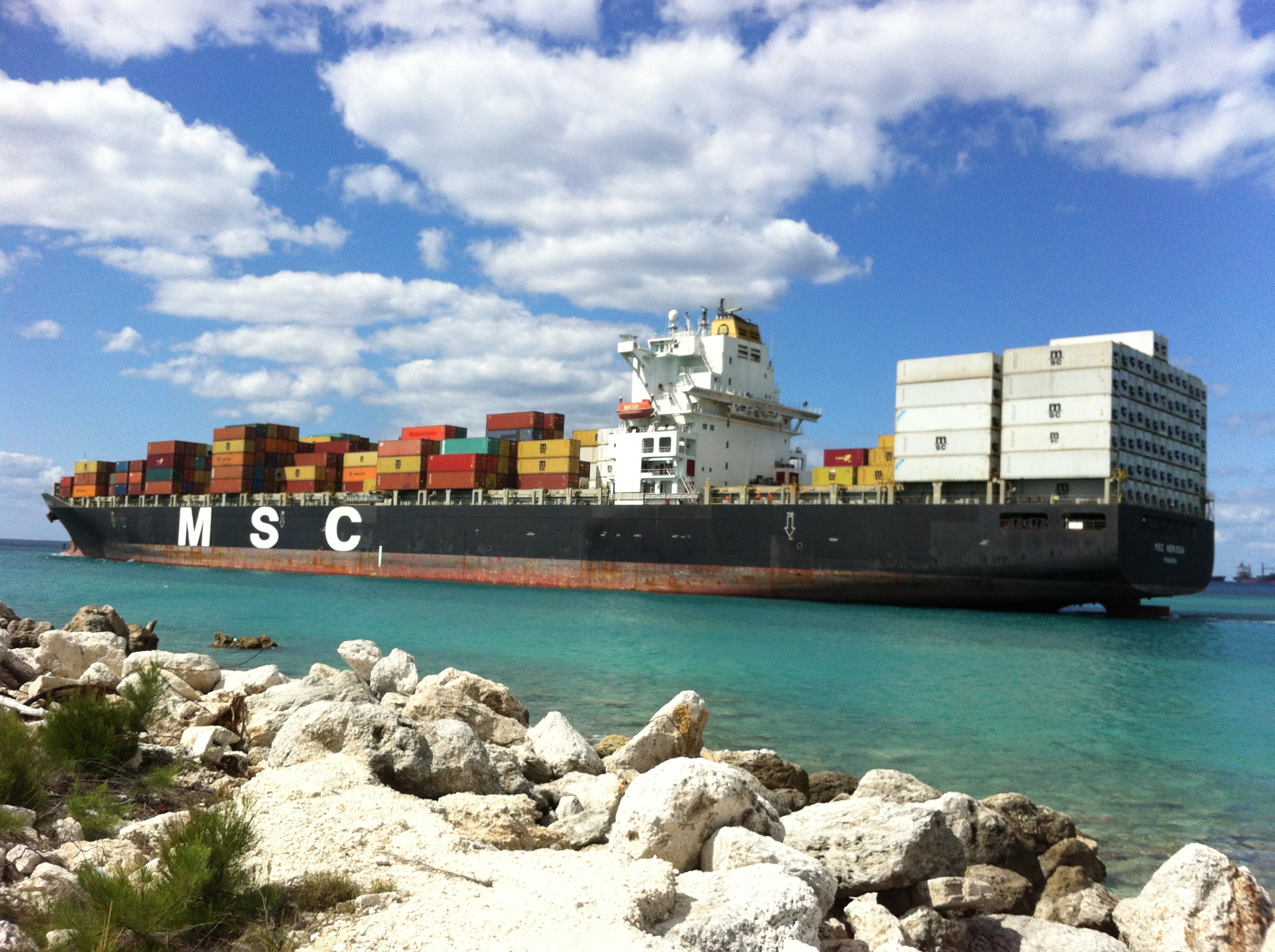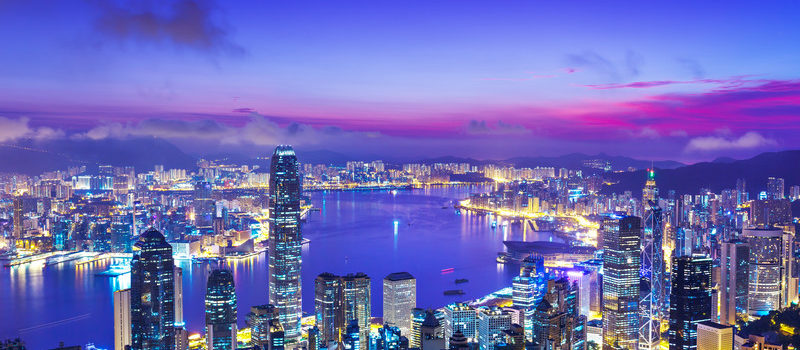What’s Happening in Hong Kong and Why?
NSF Invited Commentary by Richard W. Mueller
American Consul General (Ambassador) to Hong Kong 1993-1996
August 4, 2019
The following perspective on recent events in Hong Kong and China gives history and context to an important crisis, namely, Hong Kong’s future as a Special Administrative Region of China. Hong Kong’s promised 50 years of a “high degree of autonomy” within the sovereignty of the People’s Republic of China is under pressure, as described below. How the issue is resolved, or not, will have potentially large consequences for China’s credibility in its international agreements and sensitivity in handling difficult issues as well as for Hong Kong’s significant world role in trade, finance, and economic development. Also, at stake are the civil liberties, human rights, and lives of the Hong Kong people.
The View From a Hong Kong Perspective:
– Hong Kong (HK) was promised a “high degree of autonomy” after its return to China in 1997, particularly in civil liberties and freedoms, rule of law, travel/ trade/investment, participation in international organizations. Defense and foreign affairs were reserved to the national government.
– HK has continued to prosper since its return to China. But more recently the central government has intervened more often, e.g., when it attacked the press and others for criticizing the Communist Party or when it forcibly removed HK residents to the mainland for detention/trial.
– Many Hong Kong people, particularly the younger generation born after 1997, have chafed under Beijing’s demands for patriotic education in schools, security legislation, and patriotic obeisance. The umbrella movement of 2014 drew widespread support in HK. The current generation feels itself to be unique “Hong Kongers,” different from mainland Chinese.
– Few Hong Kongers advocate independence. Universal suffrage was in the cards but not full democracy. HK wants more freedom to openly choose its leaders and more restraint from China.
– The spark that started the current prairie fire, to use a Mao Zedong phrase, was a government proposal for extradition to China. Interestingly, many professional HK civil servants now are speaking out. The demands of the demonstrators vary: permanent withdrawal of the extradition legislation; discipline of the police for excessive use of force; action to deal with the high cost of living and enormous wealth divide; concessions from Carrie Lam, HK chief executive, including a more sustained dialogue with different societal groups; importantly, more restraint from Beijing.
The View from a Beijing Perspective:
– Hong Kong is fully a part of China. The one-country/two systems policy is China’s alone to implement. Interference from any other country is interference in China’s internal affairs.
– Criticism of the Communist Party and China’s leaders is a red line not to be crossed.
– Demonstrations reflect poorly on China which has helped to take care of HK and allowed its people to invest and travel/live in China and to again be part of the great Chinese people.
– The HK chief executive must tamp down the demonstrations. The HK police must steel themselves and deal forcefully with demonstrators as necessary.
– Beijing has launched a high visibility propaganda offensive. The US is the “black hand” behind the demonstrators trying to separate HK from China. Combined with the US-launched “tariff war,” America is the “shit-stirring stick” interfering in China’s business.
– The PLA has troops in HK that could attempt to suppress unrest. Beijing will be extremely reluctant to take this course since the outcome would likely involve bloodshed, shatter the current one country/two systems constitutional structure, undermine economic development in China and draw deep criticism from around the world.
– Any such use of PRC force would further alienate Taiwan and set back China’s strategic goal of reuniting it with the “motherland.”
– However, Beijing would not hesitate to launch such an intervention and bear the attendant costs if it felt it had no other choice to deal with threats to China’s unity.
The View From a Washington Perspective:
– The US has long-standing ties with Hong Kong. By enacting the Hong Kong Policy Act in 1992 the US, at China’s request, recognized China’s one country/two systems structure allowing HK to maintain a system different from the rest of the PRC. The US supports HK as an engine for international trade/investment and a beacon for civil liberties and human rights.
– The US continues to support HK’s promised “high degree of autonomy.” Protests and demonstrations are solely those of Hong Kong people. The US stands for non-violence.
– The Trump administration has commented little on Hong Kong. It avoids statements that might divert attention from the issue of the “tariff war.” It downplayed the outgoing American Consul General’s recent final speech on US – HK relations, an insightful statement of American interest in a productive relationship with Hong Kong and China.
– More broadly, the administration correctly identifies unacceptable and harmful Chinese policies and practices and points to the authoritarian nature of Chinese leadership and the Communist Party.
– There is little discussion of how a constructive relationship benefits both countries.
– The administration has adopted a broadly confrontational approach to China without any cogent, strategic sense of what the relationship should or could look like over coming years and how to work toward it. For example, it suggests the US needs to de-couple its economy from China’s and create a “whole of society” resistance to China. Some people talk about a new “cold war.”
– The administration’s approach will not serve HK or the US well. If China concludes the US or anyone else is trying to separate HK and Taiwan from China, it will act forcefully and even militarily.
– Americans need to identify our national interests clearly and how best to realize them. Do those interests include a broad, uncharted, and dangerous confrontation with China that could even lead to armed conflict?
– Or is there a wiser path of “tough diplomacy” and realistic policies that would better serve US long-term interests of peaceful development and engagement with the rest of the world?
Richard W. Mueller was a 32-year career Foreign Service Officer, Minister-Counselor, retiring in 1998 after serving as American Consul General (Chief of Mission) in Hong Kong, 1993-1996. He previously served as Deputy Executive Secretary under Secretary of State George Schultz and Deputy Assistant Secretary for Legislative Affairs under Secretary James Baker. He specialized in Asian and Chinese affairs, serving in State Department positions as well as in Beijing, Hong Kong, Taiwan, two assignments at the American Embassy in Saigon, and Canberra. He subsequently served as Director of the Asia Society Hong Kong Center and then for fifteen years was Head of School of three schools, Northfield Mount Hermon School in Massachusetts, Hong Kong International School, and Shanghai American School. He currently serves as a trustee of Chinese American International School in San Francisco and is an affiliate of the Center for China-U.S. Cooperation of Denver University’s Korbel School of International Studies. Richard and his wife, Claire, currently reside in Golden, Colorado.


